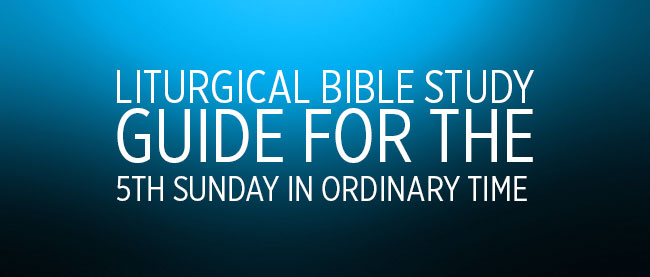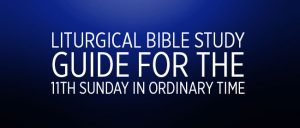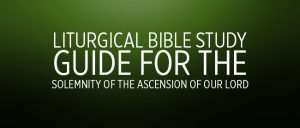1st Reading – Isaiah 58:7-10
Until the 18th century it was presumed that Isaiah of Jerusalem wrote all 66 chapters of the book which bears his name. The tradition of single authorship was first questioned around the year 1167 but serious questions were not raised until the late 1770’s and early 1780’s. At that time scholars maintained that chapters 40 through 66 were written by a different author who lived some 150 years after Isaiah; during the Babylonian exile. They named this unknown author Deutero- or Second Isaiah. In 1892 a scholar argued for a separate author of the suffering servant songs and of chapters 56 through 66, whom he named Trito- or Third Isaiah. Protestant scholars were generally convinced by the soundness of the new arguments. Catholics, although with some hesitation, tended to agree. A negative response of the Pontifical Biblical Commission on June 29, 1908, precipitated by fears of the Modernist movement, made Catholic scholars revert to an ultraconservative viewpoint of single authorship. Once the theological problems were solved, so that the inspiration of major parts of the Bible was not being questioned but only the literary and historical questions of an author’s name and date, Catholics began to argue again for the split authorship of Isaiah. Most Catholic scholars now work with a Deutero- and Trito-Isaiah thesis.
The reasons for separate authorship of chapters 40 through 55 are, first of all, historical. The addressees are no longer inhabitants of Jerusalem, but exiles in Babylon. Jerusalem has in fact been destroyed and now awaits reconstruction. Babylon is no longer an ally, for she has destroyed Jerusalem and deported the Israelites. The former prophecies about Jerusalem’s destruction have been carried out (Isaiah 1:23-31; Jeremiah 7:1-15; Ezekiel 22, 24) and Israel now awaits a new, more glorious future. In Trito-Isaiah (chapters 56 through 66), Israel is back again in her own land, and the problems are different than those pictured in Isaiah chapters 1 through 39. Our reading today comes from Trito-Isaiah.
2nd Reading – 1 Corinthians 2:1-5
We continue this week with Paul’s 1st letter to the Corinthians as he addresses divisions within the Church. As you will recall, two weeks ago we heard Paul address those who claimed to belong to Apollos, those who claimed Cephas, others who claimed Paul, and even those who followed only Christ. At that time he reminded them all that the Church is the body of Christ and as such cannot be divided. Last week he reminded us that God has chosen what is weak by human reckoning to be His followers. If anyone can boast, they can boast only in that they have been chosen by God. This week he reminds us that we are to pay attention to what is important – we are to hear the clear message of the crucified Christ and pay attention to it and not the messenger.
Gospel – Matthew 5:13-16
Having just completed His Sermon on the Mount which we heard last week, Jesus applies the beatitudes to the hearers of the sermon. He makes this application by using the homely metaphors of salt as seasoning and the single lamp that was used in the one-room house of the Palestinian peasant.





